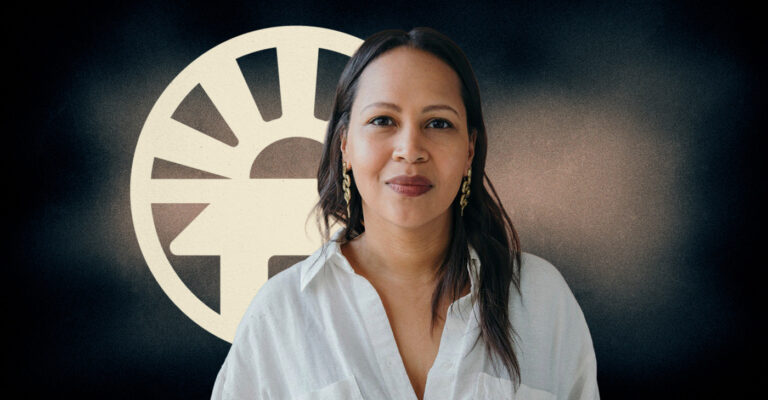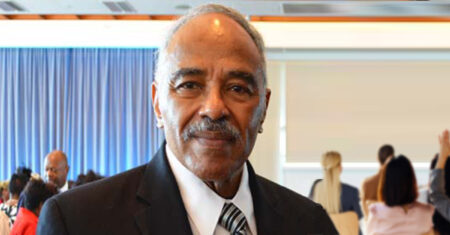By Greer Marshall
“Caring for myself is not self-indulgence, it is self-preservation, and that is an act of political warfare.” — Audre Lorde
Three visions, one piece of land. In 1984, Alex Haley bought 157 acres in Clinton, Tennessee, to create a retreat for writers. When he died in 1992, the Children’s Defense Fund purchased the property and turned it into a training ground for child advocates. In 1999, Maya Angelou, Toni Morrison, and others gathered to dedicate the Langston Hughes Library, a barn redesigned in glass and light by Maya Lin. Decades later, political strategist Jessica Byrd began building something else there. A refuge for campaign-weary organizers who, in her words, forgot how to breathe.
“The job I signed up for at eighteen was not the job I was doing by 2020,” she said. Every week during the second Abrams campaign in Georgia, she trained field staff on what to do if a shooter entered their office: lock the door, turn off the lights, stay quiet. She was teaching organizers how to survive, not how to organize. People were looking for her, and death threats came regularly. On election night 2020, she spent the night in a bunker.
That summer, twenty-five million people held signs that said “Defend Black Life.” It happened. People moved when they saw something worth moving for. But movements collapse when the people holding them up burn out. If she wanted change to last, she had to help leaders last.
After fifteen years of campaign work, her body gave out. “I really experienced a level of physical burnout that I didn’t even know existed,” she said. She had always been purpose-driven, the kind of person who said yes to hard fights. But the work had grown violent, and it was not sustainable. “I wanted to quit, and I was searching for a way out of the work. I really was.”
How do Black leaders survive the work of democracy?
What if the next great act of organizing was not protest or policy but rest?
She was coming to terms with the fact that the job had changed. Campaign staff were providing emotional support and mutual aid, managing their grief while they organized. The way things had always been done could not keep up with what the moment demanded. If movements were going to last, the people involved needed a new way to learn and rest.
That’s when a friend from the Children’s Defense Fund told her about the Alex Haley Farm. Should she bring her training there? She said, “Let me think about it. The sunlight, the trees, the open space, all of it felt like medicine. What leaders needed was not another hotel ballroom with panels and bad coffee. They needed to remember what safety feels like.”
Her realization was simple but radical. “If we want the best and the brightest, we need to create the conditions for them to show up.”
On Haley’s farm, Black Camp begins at the green gates. A team waits with tea and hand massages. A local chef makes breakfast. There is a twenty-four-hour library and hills to roll down. There is always a healer on site because Jessica plans to get into it. She’ll ask what your assignment is, why you are tired, and how you got this far out of alignment.
People have arrived unsure. “Most people say, ‘I had no idea what was happening. I just trusted you,’” Jessica said. Then something shifts. The armor falls off. “They’re like, ‘Oh, I didn’t know I wasn’t breathing. Oh my, I didn’t realize how much stress I had on me until I got to the fresh air.’”
Jessica does not call herself a teacher; she calls herself the chief camp counselor. At Black Camp, you are not attending panels or taking notes on someone else’s PowerPoint. You are being fed so that later, when you need to analyze on your own, you have all the ingredients. The classroom is a multi-sensory space, designed to facilitate intense discussions. There are provocative questions, not talking points. The rest of the time, people are rolling down hills, reading in the library, or talking to someone in their cohort for two full hours instead of racing from session to session.
This is school, Jessica insists, not meetings. Every session offers context on US history, Black history, and Black culture. She does not tell people what to think; she provides them with information and asks questions. By the time people leave, they are rearranging staff schedules, reconsidering strategies, and asking new questions.
The people who come are not always who you would expect. There are elected leaders, but there is also the woman who runs the local coffee shop that serves as a community center. The man who owns the oldest Black theater in his city. Jessica disrupts the narrow idea of who a leader is. If you serve others, if your community depends on you, you are doing leadership work.
She knows what happens when leaders break. She also knows what happens when they don’t. At Black Camp, people leave and change how they hire, organize, and ask questions. Rest is not an escape. Rest here is a strategy. Recovery is not a break from work; it is the work.
Black leadership has always been a public performance in America, a job that rewards endurance over reflection. Jessica no longer believes that model works. At Black Camp, she is redefining what leadership looks like by restoring the people who make it function.
Jessica was trained a certain way as a child. “You don’t go into rooms alone. When you get to a table, you widen that table,” she said. That mandate stuck. Every person who comes through Black Camp goes back and brings somebody else along. That is the optimism, not that it will be easy but that it multiplies.
When people leave, they don’t take souvenirs. They take new practices. Across the country, movements are thinning under the same pressure that nearly broke her. Between crises and elections, the demands never stop. America asks people to keep fighting for democracy but rarely pauses to care for the ones defending it.
Black Camp exists in that pause. It rejects the notion of accepting burnout as a badge of honor. Jessica believes movements will collapse if restoration is not part of the strategy.
Back on the farm, in the evenings after sessions end, people sit under the stars, talking their shit about what it means to lead without losing themselves. Some laugh. Some cry. Some sit in silence. What binds them is breath, the simple fact that they are still here.
When Jessica walks the land at night, she sometimes thinks about Alex Haley’s dream for this place. She sees herself in that lineage now, not as a writer but as a caretaker of Black stories. The work continues. It always does. But at Black Camp, before anyone picks it up again, by hook or by crook, they learn how to breathe.
Jessica Byrd, a nationally recognized political strategist and founder of Black Camp, has been named to the TIME 100 Next list for her work in empowering transformative Black leaders. She blends strategy, optimism, and deep community care to redefine leadership
Black Camp is a hub for intergenerational learning, civic healing, and culture-making. Part training ground, part gathering space, The Farm and the tour together offer a blueprint for what’s possible when joy, strategy, and community power come together. The Black Camp is a traveling portal.






